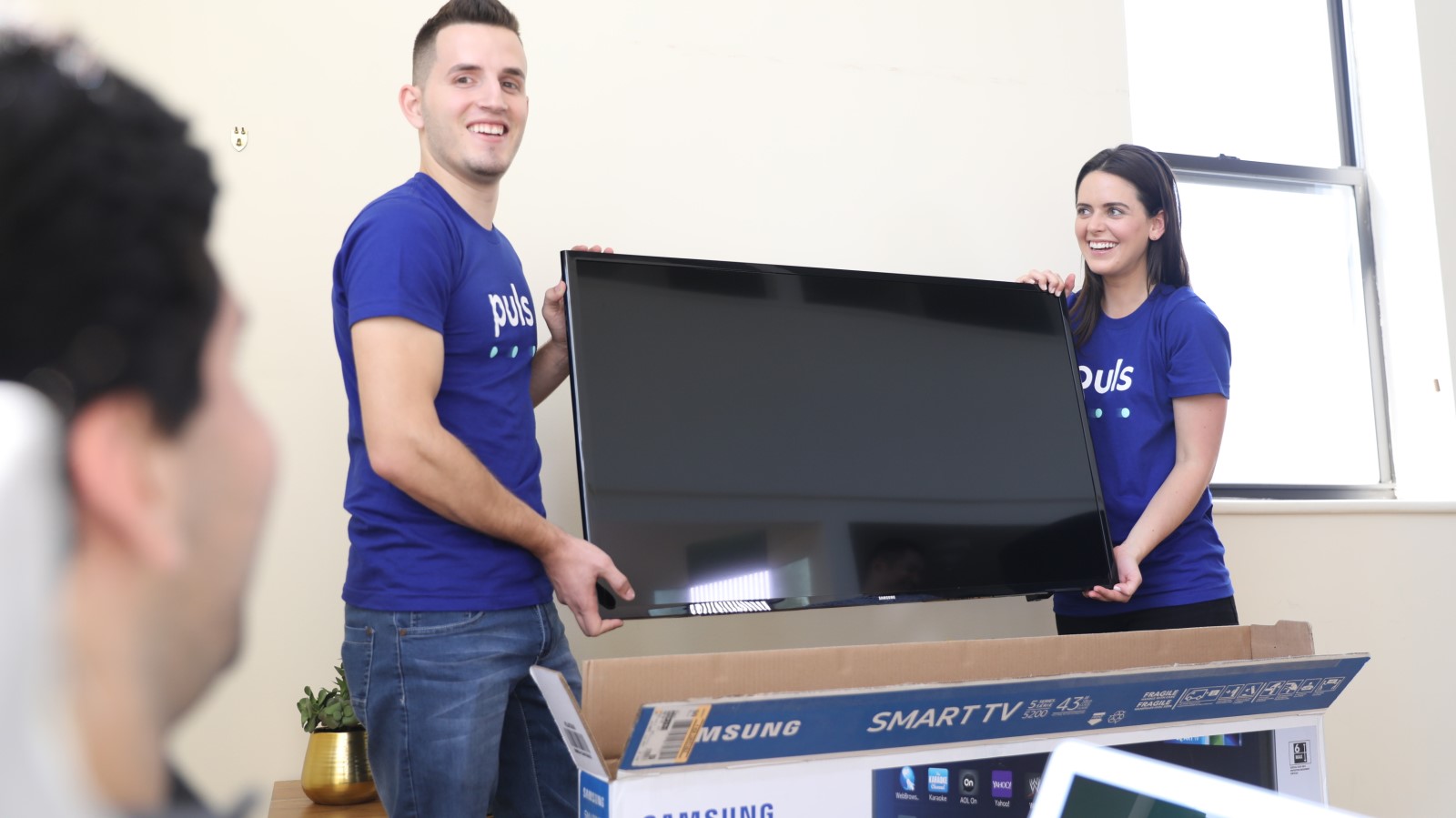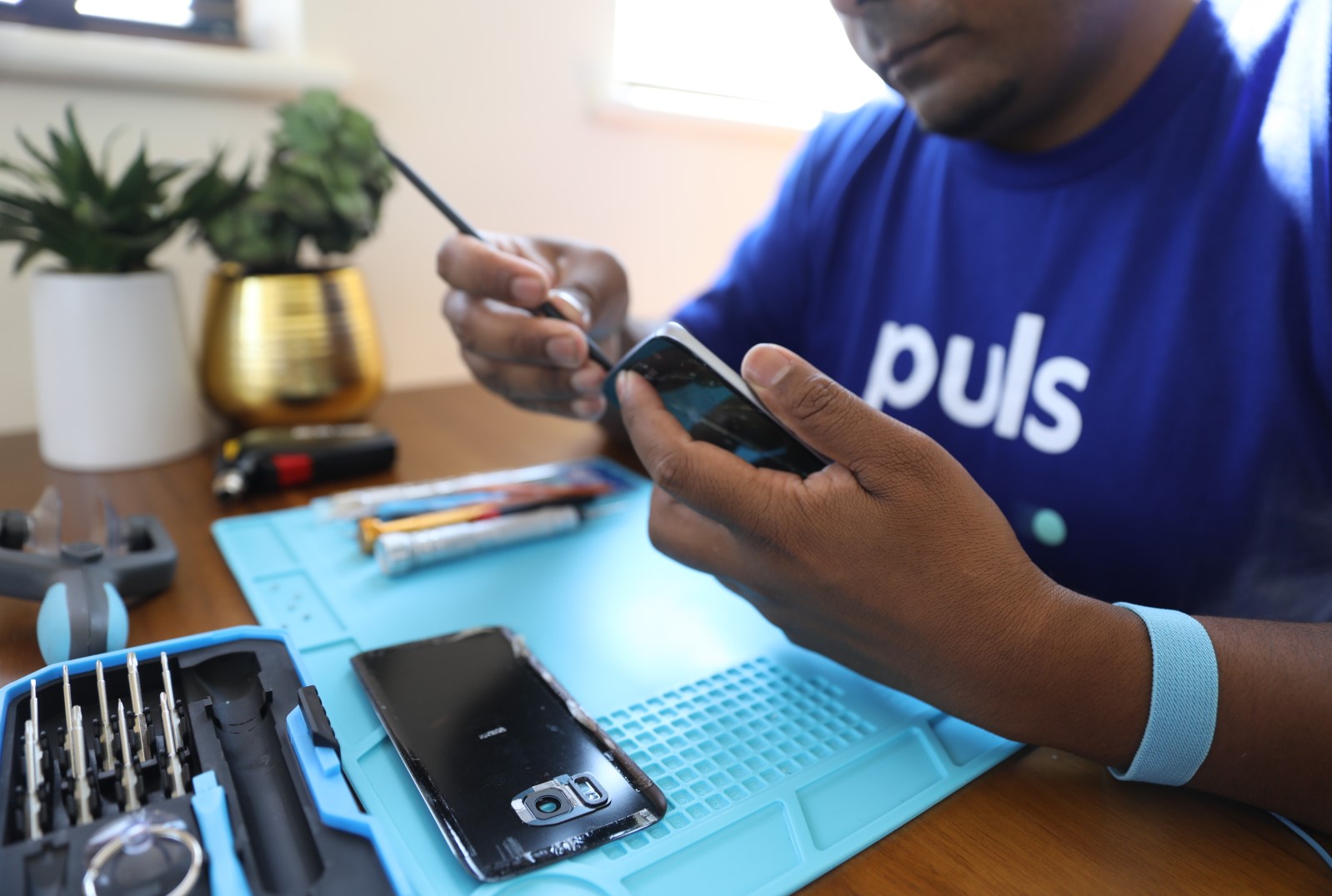The annual “Black Friday” after-Thanksgiving sales extravaganza (this year on November 24th) comes with a huge uptick in holiday electronics purchases in the United States. Unfortunately, like death and taxes, there’s little more certain in life than the fact that your new devices will at some point need repair.
Enter Israel-founded, San Francisco-based startup Puls, which promises to make fixing your iPhone, iPad or smart-home devices less painful by sending a technician to your door in 60 minutes or less.
Dealing with service technicians doesn’t rank quite as high on the awfulness scale as applying for a driver’s license, but it’s close, says Eyal Ronen, cofounder and CEO of Puls.
“There’s haggling with the technician, the quality of his work may be low, maybe he doesn’t show up when he’s supposed to, maybe the parts used are ‘unofficial,’” Ronen explains. “We thought we could use technology to solve some of these problems.”
Ronen teamed up with Itai Hirsch, an Israeli living in San Diego who owned several companies providing installation and repairs for solar panel and HVAC systems. Together, they began to strategize how the repair process could be streamlined.
The original name for the company was CellSavers. “We knew we couldn’t tackle every vertical at once,” Ronen tells ISRAEL21c, “so we started with cell phones.”
The company has expanded to include repairs for a variety of smart-home devices and a new service to mount big-screen TVs.
“Let us do the heavy lifting,” the Puls website says, and for anyone who’s ever tried to wire a home entertainment system on their own, it’s not surprising that this new offering has become popular.

Puls removes the haggle factor by setting a fixed price on its website. As a result, the customer knows how much it will cost before the technician arrives. Payment is made online via credit card and Puls takes its cut from the amount charged to the customer.
Puls can set a price in advance because it has detailed, step-by-step questionnaires on its web site that customers complete before the technician is dispatched. So there are few surprises.
That said, there are times when the price can go up. When it comes to televisions, for example, “we discovered that, on average, we install 1.4 TVs every time we meet a customer,” Ronen says. How does that math work? “We will come to install a single TV, but very often the customer has another TV in the house that’s never been hung on the wall.”
Puls employs an Uber-like model – all its technicians are freelancers. A good technician can earn up to $40 per hour with Puls, Ronen says. Technicians are paid via direct deposit twice a week. The company has 1,300 technicians signed up in 43 cities in 22 states across the US.
An additional 53 full-time employees work in San Francisco, where marketing and sales are based, and in the company’s Tel Aviv research-and-development office. Ronen started the company in Tel Aviv before relocating to California in 2016.

Make me a match
A key part of Puls is the company’s matchmaking system finding the right technician (or technicians, for large jobs) for each customer.
“We have to sync the technicians with the customers, determine how quickly the technician can get to the customer and check if the technician has the right license.”
For example, if the technician will be installing an electrical outlet, he’ll need an electrician’s license, Ronen explains. Technicians receive an alert that a new job is available and “claim” it. Most appointments are claimed in less than 10 seconds, Ronen adds.
Puls does some serious vetting. “We had more than 20,000 applicants so far but we onboarded just 8 percent of them,” Ronen says. Technicians have to pass both a skills test and a personal interview with a Puls recruiter, who does a full background check.

Technicians don’t buy their own repair parts; Puls ships them by UPS or FedEx at no cost to the technician. That allows Puls to source parts in bulk economically.
Inventory is also part of the matchmaking system. “We forecast what we expect each technician to need in the following week, based on what he did the previous week, which devices are available in his or her market and how many parts the technician has in stock at the moment,” Ronen says. “We only dispatch a technician to a repair job if he has both the right skills and the right inventory.”
It’s this backend system, even more than the Puls service itself, that’s made Puls so attractive to investors. The company has raised $43 million since 2015, from big-name venture capitalists like Sequoia Capital and Carmel Ventures.
The company’s name change in August came in parallel with a $25 million Series B round led by Red Dot Capital. The round also included Samsung, which Ronen says is interested in how Puls can help it improve repairs not only for phones but also for large Samsung appliances.
Puls enters new markets by doing a “smoke test,” Ronen explains. “We advertise for a week, see how much demand we get, then decide which locations to go into and start recruiting technicians.” The next market outside the US probably will be Australia or the UK.
Mobile phone repair is the company’s most popular service. Puls recently added home repair services for the Google Pixel and Pixel 2 smartphones. Up next: PC repair and Wi-Fi.
For more information, click here.
















